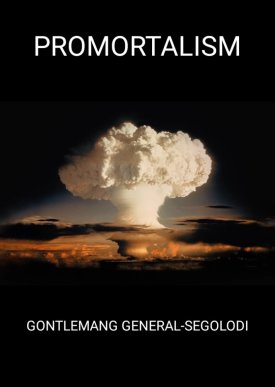Thomas Michaelson
New Member

Considering its controversial subject matter, it is not for the faint hearted. However, if you have an open mind, you might find it very fascinating & thought provoking.
The book is an exploration of 2 unique philosophies that support total extinction, namely existential antinatalism (the idea that procreation is illogical) & existential promortalism (the idea that it is logical for any mortal living being to die as soon as possible).
I should start by differentiating existential antinatalism/promortalism from contemporary antinatalism/promortalism. The latter 2 are against procreation & continued living respectively, but on the basis of ethics/morality. Ethics/morality is a completely fictitious concept & this can be easily proven.
Firstly, David Hume’s “is-ought” gap can be solved, but the solution has nothing to do with morality. It can only be solved by determinism/causation e.g a ball that is held up in the air is let go. What ought to happen? It ought to fall down. The, “is” statement is the fact that the ball has been let go and the, “ought” statement is the fact that it must fall down. I state that morality is fictitious because it fails to solve what I call the, “ought-ought” gap. Since deriving an, “ought” from an, “is” has nothing to do with morality, the only other option to try & prove moral realism is to try to derive an, “ought” from another, “ought”. Unfortunately, this is impossible, because it results in an infinite regress of, “ought” statements. E.g If you try to justify, “ought” claim-1 with, “ought” claim-2, you are implying that, “ought” claim-1 requires justification, because it is an, “ought” claim. This further implies that, “ought” claim-2 requires justification as well. Attempting to do so with an, “ought” claim-3 results in the same problem, leading to an infinite regress of, unjustifiable, “ought” claims.
It argues in favor of both, with 3 arguments.
The first is called the argument from unnecessary complexity. It states that in the world there exist living things and non living things & both serve the same purpose, which is obedience of the laws of physics. However, the non living things can do this job by themselves, meaning that the existence of living things adds unnecessary complexity to the world. Thus, it is more logical to make the world simpler by removing the already existing living things & not bringing more new ones.
The second is called the argument from a lack of purpose. It states that it is impossible to prove that a living organism must continue living or that it must create new life, since this would amount to a moral claim & morality is a fictitious concept. As such, it is illogical to do something that you have no obligation to do. One could argue that there is no moral obligation to be dead either so being dead is illogical. This is false, because dead things do not exist any more & the characteristic of being logical or illogical cannot apply to the them.
The third is called the argument from a universal solution. Know life, know problems. No life, no problems. It states that every living thing has to solve problems. The word, “problems” here, is used in a general sense, to refer to having desires. To have a desire simply means to want something. The nature of the desire, doesn’t matter. It could be anything, no matter how big (wanting to run for president) or small (wanting to go to the toilet). This argument states that it is illogical to create offspring who will have desires, since they did not need or want anything before they were born. It goes on to state that death is the most logical reaction to having any desires, because death gets rid of desires themselves. Consider for example, the fact that humans need to eat food to stay alive. Instead of dealing with your hunger by eating food, if you instead die, you would permanently, no longer even need to eat. On a larger scale, rather than governments spending huge amounts of money & effort on agriculture, it would instead be a more sensible action to organize a total genocide, to avoid the need for food production.
I would give it a 4/5 rating. Definitely one of the most interesting books I have ever seen & certainly worth a read.


